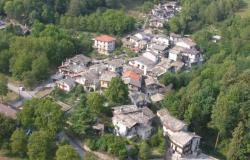«The importation of gas from Congo desired by Eni so far is only a failure», reveals investigation by Greenpeace Italy
An investigation carried out by the Greenpeace Italia investigative unit reveals that the project “Congo LNG” by ENI, promoted by the company and by the last two governments in office in Italy to import liquefied natural gas (LNG) from the Republic of Congo and thus make up for part of the lack of imports of fossil gas from Russia, is an initiative full of shadows , also useful for the Italian energy giant to hide and relocate part of its emissions.
According to what was found by Greenpeace Italia, in fact, just 15% of the quantities of gas announced with great fanfare by ENI have so far arrived in Europe from Congo, with a practically zero contribution to the energy needs of the winter 2023-2024. Furthermore, as reported by the environmentalist organisation, during the first transport of Congolese LNG destined for Italy, 2.7 million cubic meters of gas were burned unnecessarily, for a value of 800 thousand euros (equivalent to the annual consumption of 3,243 Italian families), releasing 8 thousand tonnes of CO2 equivalent into the atmosphere. In fact, the transport ship had to wander for 27 days in the western Mediterranean because the Piombino terminal had no free slots to unload the LNG on board.
The Congo LNG project, according to ENI, was also supposed to constitute an opportunity to prevent, as had happened until now, part of the gas from being burned with the so-called flaring technique, which increases emissions without producing energy. The difficulties faced by the first load on the journey from Africa to Italy, however, thwarted the operation because, as anticipated, part of the gas removed from flaring was wasted during transport by sea, with even more impactful consequences on the climate. Paradoxically, this allows ENI to boast of reducing flaring in Congo and to partly clean up its sustainability balance sheets by placing the emissions associated with gas lost along the way on the shoulders of the midstream sector and the ship owner.
«Fossil industries like ENI have exploited the war in Ukraine to accredit themselves as champions of energy security, while in reality they are only trying to protect their profits guaranteed by fossil fuels, slowing down the development of renewable sources and worsening the climate crisis», comments Simona Abbate of Greenpeace Italia. «In the case of Congo, our investigation unmasks both this attempt by ENI to prove itself indispensable for the country’s energy stability, and the modus operandi of the Mattei plan, which turns out to be a project useful only to the interests of the fossil industry. We are faced with a failure that demonstrates once again how energy security cannot be guaranteed by fossil gas, but only by renewable sources.”
Note Print
If you like, leave a like on Facebook, follow us on X and Instagram





